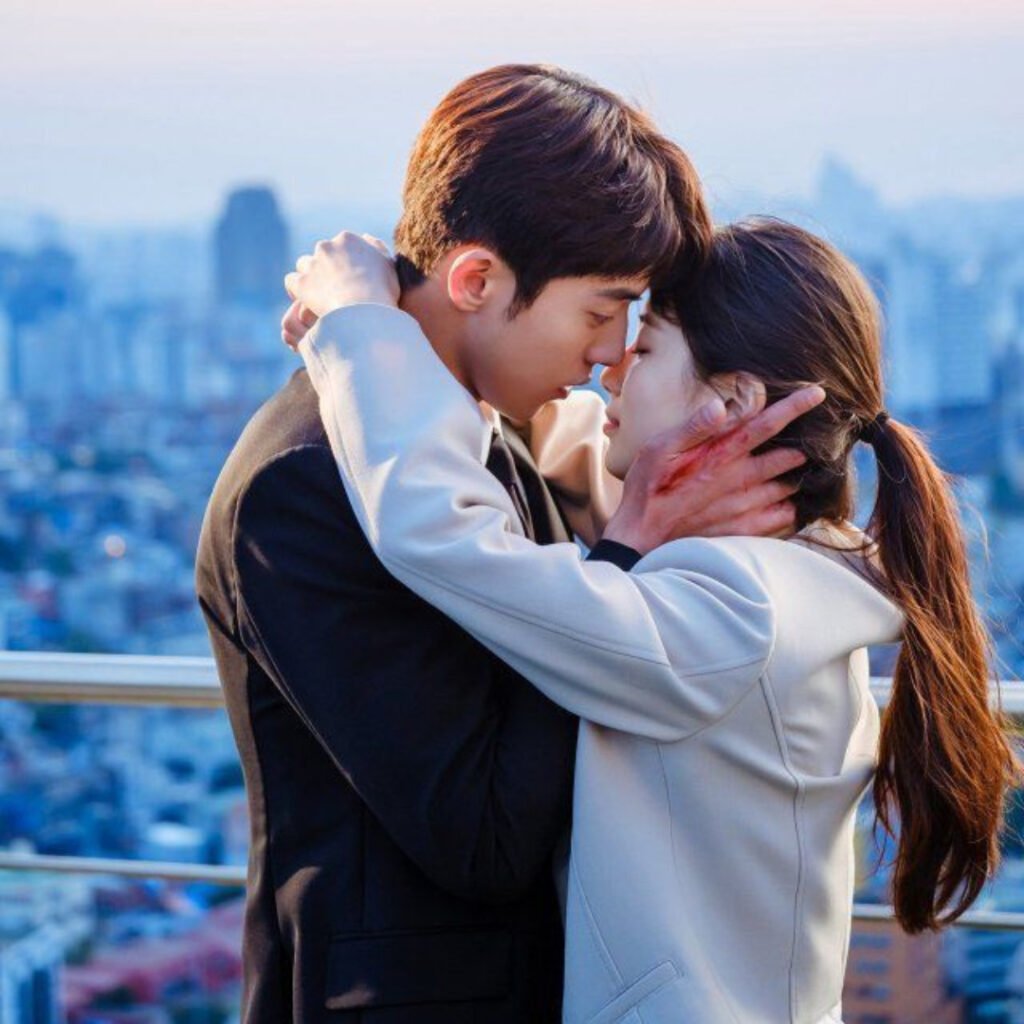It’s #Barbieheimer but no Bollywood this weekend: Why Genz Hates Bollywood But Loves Hollywood, Netflix, and K-Drama, for a Change.

It’s a movie date for many, but either it is Oppenheimer or Barbie this weekend. And sadly, they aren’t Bollywood movies that India is rooting for.
Should we hate Hollywood for this?
Of course not.
I can’t think of the last time when there was so much buzz that we had hardly any tickets at prime time in my favorite multiplex at a prime location.
The only time I could think of this major clash was between Om Shanti Om and Sawaariya, where significant people bought tickets in Black.
These days, we have movies such as Evil Dead Rise, Transformer, and Movies from Marvel and DC, but we don’t see Bollywood trending in the list anymore.
And, of course, we don’t love this anymore.


So are you Team Barbie or Team Oppenheimer?
Born and brought up in a pure Indian household, the craze for Bollywood movies was insane. While growing up, I listened to my mom and dad’s late-night movie theater experiences, and how they used to enjoy Bollywood movies during their bachelor’s is something I hear now and then.
I get to hear that the Bollywood movies from the 90s and 80s had a beautiful storyline, and some movies are still in demand in Gen-Z. Even if I watch “Jo jeeta wahi weekender” or “Dil chahata hai,” there is always a relatable factor in it that I enjoy the most.
It’s not like I had no craze for watching Student of the Year, but I can dream of this fantasized School once in 5-6 years, but not every now and then.
Children in their 20s enjoy old movies such as 2 States, Hassi toh Phaasi, etc, rather than new releases.
So, in search of entertainment, every gen-z is searching and trying to fix what to watch and what not to watch this weekend on Netflix, Amazon Prime, Hotstar, etc.
As a result, we have a massive craze for Korean dramas, Hollywood sci-fi thrillers, dc-comics, and Disney movies, which has opened a flash gate of Movies and dramas for all entertainment lovers.
But why this Craze about the App Netflix and the Korean Dramas?
I’ve witnessed a significant change in Generation Z’s viewing habits, with many of us favoring Korean dramas and streaming services like Netflix over Bollywood.
It’s fascinating to investigate the causes of this phenomenon and comprehend why we appear to be favoring these alternate types of entertainment more and more.
"
In this article, I will explore the reasons behind this phenomenon and discuss whether Bollywood has genuinely lost its charm for Gen Z.

Why is there an Erosion of Bollywood’s Charm in Today’s Generation?
Bollywood, the heart of the Indian film industry, has been integral to our cultural fabric for decades.
I can’t help but think about how Bollywood and my generation have changed as a part of Generation Z.
With so many entertainment options in this digital age, Bollywood has gradually lost its appeal.
But frankly speaking, we are disgusted to see Bollywood’s fading popularity among young people today, and listed below are some of those few reasons:
Firstly, Change of Taste and Exposure Globally
Today’s youth have access to an unprecedented variety of content worldwide, including web series, international films, and a range of streaming platforms like Netflix and Amazon Prime.
With this vast array of options, Bollywood’s traditional storytelling and predictable plotlines might only sometimes match the evolving tastes and desire for fresh narratives among the youth.
For example, the Korean movie “Parasite” has been recognized globally. The masterful storytelling has captivated the audience. At the same time, Bollywood movies need more new themes and stories with Internataional standards.
Secondly, Shift Toward Realism
Today’s Young people are drawn to accessible, realistic storytelling highlighting their problems and concerns.
Bollywood has mastered the art of building magical worlds and lavish romances, but there is a rising demand for films that explore real-life situations, complicated characters, and realistic plots.
The youth frequently discover information that better fits their quest for authenticity and emotional depth due to this shift in preference.
For example, the Bollywood movie “Dil hai ke manta nahi” had a realistic approach in the early 90’s. Where a strong, independent woman escapes from her controlling father.
Bollywood Movies earlier had realism, whereas nowadays, it’s all about melodrama, flashy-sets, too many VFX, poor content and some entertainment with an item song or a song imported from elsewhere.
Thirdly, Lack of Authentic Representation
Diversity and Authentic Representation are critical components of today’s kids’ media consumption.
Bollywood has come under fire for feeding stereotypes and underrepresenting disadvantaged groups.
The youth, who are socially conscious consumers, look for movies and storylines that connect with their varied identities and life experiences.
Bollywood loses its appeal to the audience when it falls short on this front.
For example, bollywood movies use “brownface” or inappropriate casting choices to portray the characters.
In movie, “Bala”, the character played by Ayushman Khurana where he is bald and is insecure about his appearance but is fair in complexion. While Bhumi Pednekar as the female lead was portrayed as dull complexed woman who is naturally a white skin woman.
My question is, India has a population of 1.3 billion; how makers couldn’t find a brown face woman who acts well?
The movie was criticized a lot.
Fourthly, Accessibility of various kinds of content
The ability to easily access international movies and television series has transformed content consumption.
International material like Korean Dramas, English series, and Anime which offers various viewpoints, storytelling philosophies, and genres, competes fiercely with Bollywood.
Due to their exposure to various stories, young people frequently favor non-Bollywood stories.
Bollywood needs to change with the times, accept diversity, and find new ways to tell stories that appeal to the younger, more socially conscious, and more connected audience.
But Still!
Why Netflix and Other Platforms are a Hit ?
I can’t help but be in awe of how much modern technology has advanced how we enjoy entertainment.
Among the many options available, Netflix and other streaming services have become my new favorites.
Unless and until there is huge hype, I don’t really watch movies in multiplex. But why netflix and other platforms is a huge hit?
Let's Dig Deeper!
1. On-Demand Convenience
Streaming services provide an unrivaled level of flexibility.
I used to have to adhere to specific timetables when watching traditional television. Still, thanks to Netflix, Prime, Sony, Jio Cinema, and other services, I can watch the series and movies I love whenever I want.
I’m free to indulge in on-demand entertainment, whether late at night, during my commute, or during a study break.
I can watch Movies and Dramas, any day anytime.
2. Wide Variety of Content
Streaming services’ enormous variety of content is one of their most impressive features.
There is something for every mood and interest, including Hollywood blockbusters such as Cinderella, Transformer Movies, then international treasures, critically acclaimed shows Friends, Big Bang Theory, etc, and enlightening documentaries.
I am thrilled by the wide variety of content that enables me to discover new genres and cultures worldwide as someone who loves diversity and inclusivity.
3. User-Friendly Interface
Navigating through vast libraries of information has become a joy because of the user-friendly interfaces of streaming providers, notably Netflix.
Viewing history-based customized recommendation suggestions ensures I find new series and movies that precisely suit my likes and interests.
I can easily fall into fascinating tales that connect with me deeply.
But Why K-Dramas is famous among Gen-Z when we know Language is Problem?
The relatable themes in Korean dramas have undoubtedly won over Generation Z. I can witness the broad interest in K-dramas among members of Gen Z because half of my friend circle is obsessed with it.
They speak Korean, eat Korean spiced noodles, wear their makeup, love their clothes, and even listen to their music.
Gen-Z loves K-dramas, but what are the reasons?
1. Relatable Characters and Themes
Gen Z fans connect strongly with K-dramas’ portrayals of the universal themes of love, friendship, family, and self-discovery.
These shows’ protagonists usually picturize stories that are more relatable and even focuses on difficulties and personal development, that we face in our day-today life.
So naturally, our generation, navigating through these common challenges of modern life, finds comfort in these characters of K-Drama that share our hardships and victories, creating an emotional bond that keeps us interested in their story.
For Example, “Extracurricular” a korean movie where a group of highschool students become involved in illicit activities to survive in a harsh competitive society. It offers an authentic ugly look at the challenges which the Gen-z are facing these days.
Sadly, Bollywood movies hardly talk about this; in fact, everything in Bollywood is highly fancy and beyond reality.
2. Vast tales
K-dramas pander to the wide-ranging tastes of Gen Z viewers by offering a vast range of tales and genres.
They usually run their series in range 15-16 episodes.
There is something for everyone, from romance to fantasy to mystery and historical dramas.
This variety keeps us interested and enables us to investigate other narrative aspects, offering a change from traditional storytelling.
For Example, “Train to Busan“ a critically acclaimed south korean zombie thriller released in 2016, has a gripping intense storyline while incorporating elements of horror, action, and human drama. It demonstrates vast tales in a single movie.
3. Global Accessibility
Gen Z audiences worldwide now have simple access to K-dramas because of the digital age.
Language barriers are eliminated thanks to streaming services that provide subtitles and various language options, enabling us to interact with these series much more easily than how it was before.
In fact, K-dramas have become a mainstay in our streaming habits due to Accessibility opening up a whole universe of international entertainment.
4. Social Media and Fandom Culture
The popularity of K-dramas has greatly benefited Gen Z’s passion for social media.
Social media platforms encourage debates, fan theories, and the creation of fandoms, enabling us to connect with like-minded people around the globe and share our joy and feelings.
The sense of belonging and camaraderie found within these fandoms enhances the experience of viewing K-dramas as a whole.
For Example, every korean movie or web series has their own fan pages in instagram, facebook and in other social media platforms.
In fact, the K-Drama,” Crash landing on you” became famous because of high level of engagement of the fans on social media.
Final Thoughts
As a Generation Z, we can say there has been a huge shift in our tastes in entertainment, with Netflix and K-dramas gaining popularity while Bollywood is losing its allure.
Our busy lives and desire for convenience are well managed by the variety of content and on-demand viewing that streaming services like Netflix offer.
On the other side, K-dramas enthrall us with their relatable characters and emotionally charged stories, providing a singular escape into various realms.
In the end, the entertainment industry will continue to change, and it will be intriguing to see how these many narrative techniques will continue to influence the cultural experiences of our generation.
Subscribe to new post
The One Liner
Useful Links
Order Related Queries
Useful Links
Order Related Queries








